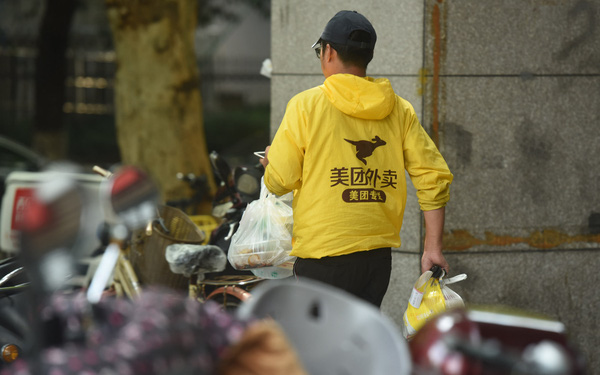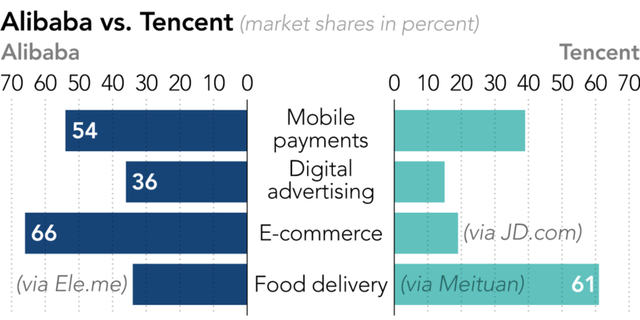Under the bone-chilling 0 degrees Celsius cold of Beijing, food delivery workers often bundle up tightly. During peak hours, they can only run. They run to meet the time that restaurants promise customers, usually under 30 minutes, and run to deliver more orders since peak hours are the time to earn the most money. They run quickly to warm up their bodies, a way to best cope with the cold.
Typically, a delivery worker works about 10-12 hours a day. Most of them work for specialized delivery companies and are provided with accommodation.

“I start work at 11 a.m. and return home around 7-8 p.m. The hours are relatively long. My daily earnings are over 300 yuan (equivalent to over 1 million VND),” said a food delivery employee from Meituan in China.
In China, there are up to 350 million people regularly using online food ordering apps, thus the profession is increasingly short of labor. Each month, one can earn an amount equivalent to 30-40 million VND. Depending on the distance, a delivery worker is paid nearly 1 USD per order, about 20,000 VND. Behind them are entire families in rural areas, so few complain of hardship.
Data analysis company Analysys International reports that the overall transaction scale of China’s food delivery market reached 195.29 billion yuan (27.4 billion USD), up 35% year-on-year in Q3 2019.
Meituan Dianping and elema.com are the two most widely used food delivery apps in China. According to Globaltimes, citing data from Shenzhen-based iiMedia Research, Meituan holds about 65% market share. Other figures from Berstein indicate that Meituan holds about 61% market share.

Meanwhile, environmental experts say it will take more than 30 years for plastic waste used in delivery utensils or plastic spoons and forks to decompose if buried in landfills.
Observers note that the expansion of the food delivery market reflects changes in the lifestyles of Chinese people, closely linked to the progress of scientific innovation and China’s internet sector.
Lu Zhenwang, founder of Shanghai Wanqing Commerce Consulting, stated: “People choose beverages for convenience and time-saving. Food delivery apps provide a wider variety of food options for young people to choose from.”
According to Lu, the entire delivery system, including the skill level of delivery workers, has improved. Non-standard restaurants have been eliminated by delivery platforms, which is an attractive factor for many young consumers.
In an online survey conducted by National Business Daily on Sina Weibo, nearly 23% of the 40,000 respondents admitted they ordered food online every day, and nearly 52% said they ordered from 1 to 5 times a week.
According to Lu, as the Chinese become wealthier, this technology sector will continue to witness stable growth of 10-20% over the next 5 to 6 years.
The hashtag “#Food delivery consumption in China reaches 195.29 billion yuan” quickly became one of the most discussed topics on Weibo. Besides those surprised by this large figure, some users expressed concern about the environmental issues behind this industry.
“The government should implement mandatory regulations for the use of biodegradable food containers in the industry,” said Luo Yameng, an urban planning and ecological city expert based in Beijing, to the Global Times on Sunday.
According to Luo, since Meituan Dianping and elema.com account for over 90% of the consumption market, the two platforms should be regulated by the government to promote the use of biodegradable food containers.